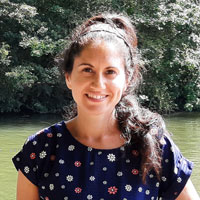Do you want to find a critique partner or beta reader but don’t know where to look for one?
Writers pour their hearts and souls into crafting stories, but the road to writing and publishing doesn’t have to be navigated alone. The journey of honing one’s craft often requires an extra pair of eyes, a fresh perspective, and constructive feedback. One of the most invaluable assets a writer can have is a supportive network of critique partners and beta readers.
Critique partners are fellow writers with a shared passion for the written word, offering in-depth analyses, constructive criticism, and detailed feedback on various aspects of a work-in-progress. On the other hand, beta readers, often avid readers or individuals from the writer’s target audience, provide general impressions and insights from a reader’s perspective. Both play pivotal roles in this process.
In a previous article, I explained what critique partners and beta readers are, and their similarities and differences. I discussed when you might need them and the best ways to work with them.
Since then, I researched online groups and resources for finding a writing partner or beta reader. I’ve personally used some of them, but not all, so make sure to do your own research and due diligence.
Finding a good critique partner or beta reader isn’t easy, but there are places you can access them.
In this in-depth article, I explore the most effective methods and locations to connect with critique partners and beta readers, from identifying the right places to recruit them, to leveraging various platforms and strategies.
Let this be your roadmap to forming meaningful connections within the writing community.
You’re welcome! 🙂
Build Your Support Network: Places You Can Recruit Beta Readers and Critique Partners
Below are some ideas of strategic places to look for a critique partner or potential beta reader.
Social Media
Social media platforms, such as X (formerly Twitter), Facebook, and Instagram, are excellent resources for connecting with other writers and readers.
On Instagram and X, follow other writers and members of the writing and book community.
Post about your manuscript in your feed or stories and ask if anyone would be interested in reading it.
The hashtag #writingcommunity on Instagram, for example, has 12.7 million posts at the time of writing.
On X, the best way is to put out a call for critique partners with the #amwriting or #writingcommunity hashtags to reach out to other writers in your genre and see if anyone is interested in exchanging work.
You’ll find lots of groups on Facebook dedicated to critique partners and beta readers. For example, Writers Helping Writers’ group is a place, as its name indicates, dedicated to writers helping writers.
Writing Communities
The Internet is blossoming with writing communities.
Some will provide a forum for discussion, others feedback on works in progress or complete drafts, while others will offer webinars, critique workshops, and more.
I dedicate a section to writing communities later.
Local Writing Groups
Look for writing groups in your area where you can meet other writers and exchange feedback.
Start by searching at your local library.
Friends and Family
If you’re starting, and don’t have a large writing network, you could ask friends and family to read your work and give their thoughts.
However, I don’t personally recommend this approach.
It’s important to find readers who will appreciate the type of books you write, and friends and family can have very different tastes. They won’t be able to give you an unbiased opinion.
Either they might say, “It’s great”, without giving much constructive criticism, or they might be too picky about things they don’t like, but which are part of the genre you’re writing (like saying there’s too much romance in a paranormal romance, or that they don’t like the action in an urban fantasy story).
If your bestie is reading the same genre you write in and you trust her/him/them, then that’s great, but otherwise, proceed with caution. There are tons of other ways to find someone to read your work, as you can see in this article.
Writing Conferences
Writing conferences can be a great place to meet other writers, but it isn’t the cheapest option when you’re just starting.
You’ll be able to attend workshops and networking events, exchange contact information with other attendees, and why not, find a writing partner?
Online Forums
Online forums are springing up all over the Internet.
Often, you’ll have to read and comment on a few pieces by other writers before you can ask for feedback. For instance, some sites have a token system where you must critique a certain number of stories before you can publish your own.
Nevertheless, it’s a great way to meet other writers, especially if you’re new in the field.
Read for more on this topic.
Writing Workshops
Writing workshops, classes, and courses, online or in person, can offer a structured environment to exchange feedback and improve your writing skills.
Online Forums and Writing Communities Where You Can Exchange Feedback
Let’s take a closer look at the writing communities and forums that exist on the Internet. Here are some useful resources to optimize your search for a critique partner or beta reader.
Scribophile is a huge platform that currently has 139,956 beta readers.
Members can post their work on the site and receive feedback from other members.
The platform is free for beta readers, but you need to subscribe for a small fee if you’re a writer.
The site also offers a variety of resources and tools for writers, including writing prompts, a forum, and a blog.
If you like large and active communities, this one is for you.
The platform is “moderated, free, and an online community of writers, agents, editors, and publishers.”
It provides threads and resources in freelance writing, novel writing, screenwriting, playwriting, poetry, and comics, as well as writing prompts, and information on writing contests and literary agents.
This is one of the largest and oldest writing communities on the Internet, where members can publish their work on the site and receive critique from other members.
Membership is free but you can also unlock additional features and perks with a premium subscription package.
The site also offers a story and character development tool.
Inked Voices is a place for writers who want a supportive, learning community, in a more intimate format.
They offer the opportunity to gather in small workshop groups to critique each other’s work.
Over 15,000 critiques have been delivered on the site to date and there is a membership fee.
Writer’s Beat is a writing forum, where you’ll find prompts and challenges, and where you can post your work for review in various sections (fiction, poetry, nonfiction).
There’s also the Writers’ Café to chit-chat with other writers, The Library to discuss published works, and an intellectual forum space to debate political or social issues.
A huge section is also dedicated to the Writing Craft.
The mission of the Next Big Writer is to help writers get published.
You’ll find writing contests and an online space dedicated to exchanging manuscripts or samples.
This community has a forum and a paid membership level.
The site also includes information on literary agents and publishers.
This site is dedicated to helping you find the perfect writing partner, for free!
You can search by genre, experience, or even favorite authors, which is super handy.
You’ll post your text online and get matched with a critique partner.
Also, you can get paid! If you receive a 5-star rating from at least ten people, you can apply to become a “Pro”.
Online Writing Workshop for Science Fiction, Fantasy, and Horror
As its name indicates, OWW is a community of writers in the genres of science fiction, fantasy, and horror.
The site points out that dozens of members got deals with major publishers.
They offer the opportunity to review each other’s work and even train you for this with templates, guidance, and mentoring.
The annual Crit Marathon is a contest run by members while Focus Groups explore on-demand topics like synopsis writing and crafting a good plot.
Goodreads is first an online platform for book lovers.
You can connect with both readers of your genre and other writers via the “Group” section.
Search for “your genre + writers” or “critique groups” or “beta reader” and join groups you like. You can then post for the need of a critique partner or a beta reader.
For example: Beta Reader Group
This is a simple and easy Google public forum and board for writers of all genres, where you can advertise a search for a critique partner and receive replies from people interested in your manuscript.
This is free, you only need to sign in to post and reply.
Because this group was started by Maggie Stiefvater, a popular YA author, this group attracts a fair amount of YA writers, but it’s open to all categories and genres.
Nathan Bransford is a literary agent who opened an online board for writers to connect with a critique partner.
You can receive feedback and help on topics such as query letters, synopses, or finding an agent.
It is free to join.
I hope this comprehensive resource was helpful and provided you with some ideas of online platforms and in-person locations to find a potential match for a critique partner or beta reader. If you feel you might need more in-depth editorial feedback and support, do check out what book coaching is, and if that might be right for you.





